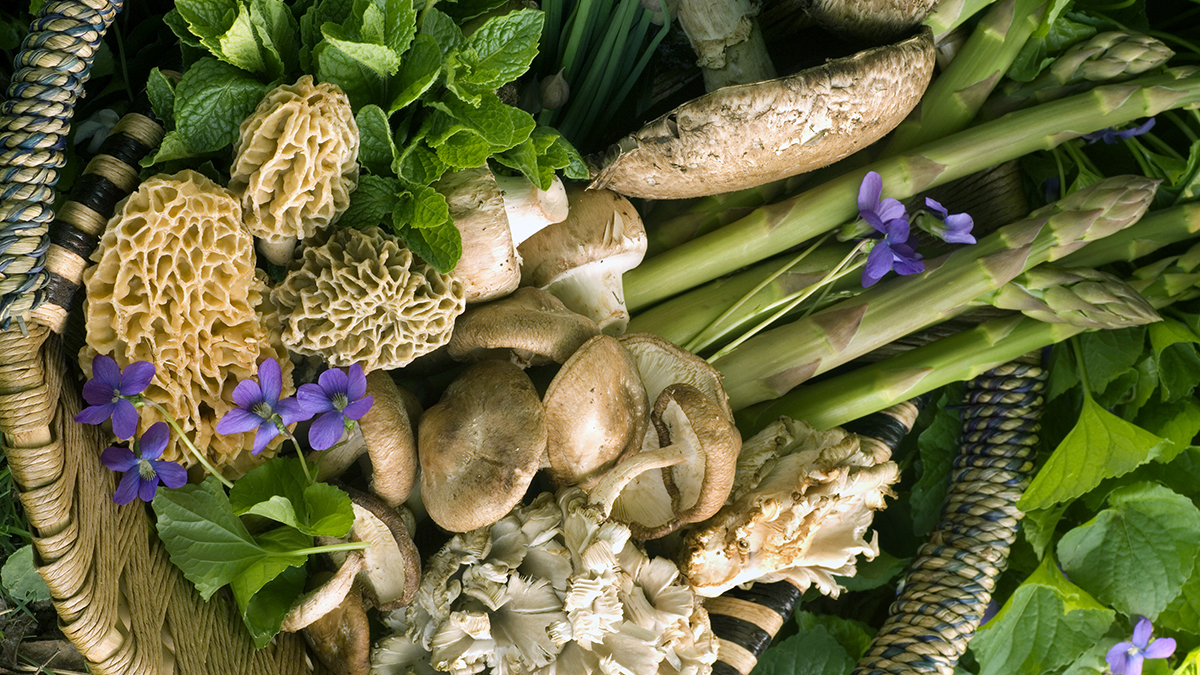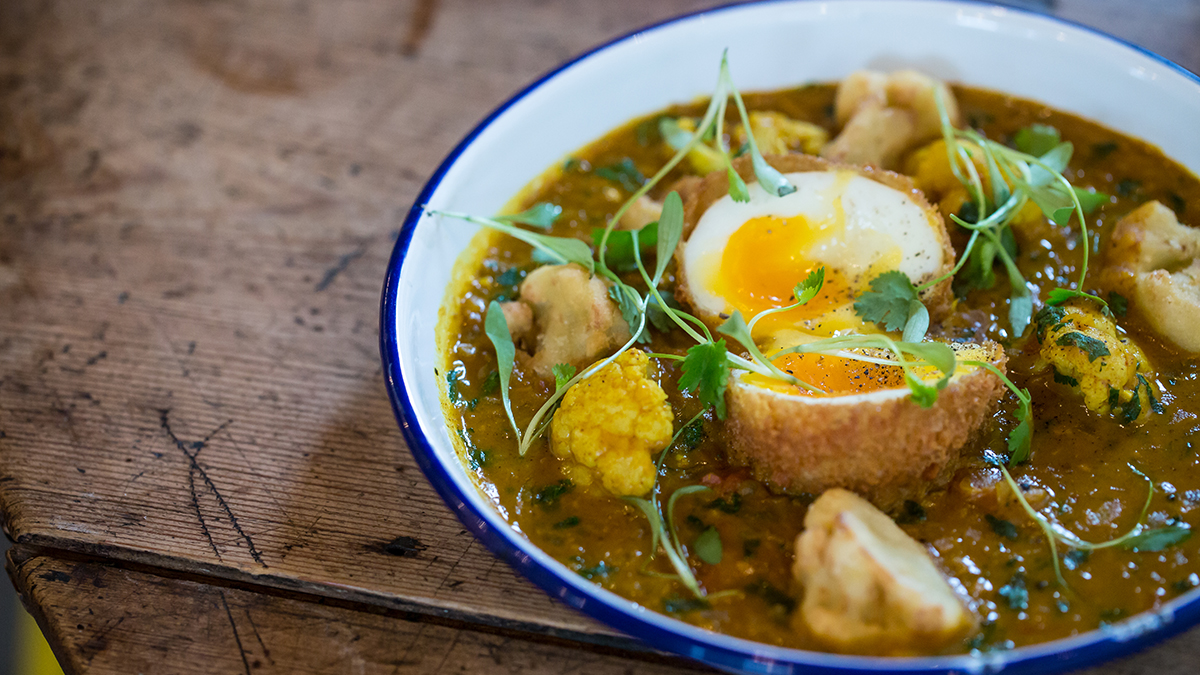Land of plenty: Urban Edibles evening
Learn about the abundance of foraging opportunities at a unique London dining event celebrating food that's available for free

A free daily email with the biggest news stories of the day – and the best features from TheWeek.com
You are now subscribed
Your newsletter sign-up was successful
When chef Skye Gyngell won a Michelin star for Petersham Nurseries Cafe in 2011, it sent shockwaves through the culinary world. Her restaurant was a simple, rustic affair, reflective of the Richmond greenhouse in which it was located. The tables were rickety, the floor earthy and the toilets housed in wooden sheds. The food was similarly elegant in its simplicity, with the Nurseries' abundant herbs, plants and vegetables taking centre stage.
The field-to-fork movement was pioneered in Scandinavia and is largely credited to Danish chef Rene Redzepi, the co-owner of two-Michelin-starred Noma. The Copenhagen restaurant, which is set to close at the end of this year before reopening next year as an urban farm, features a menu of Scandinavian delicacies such as Icelandic seaweed, musk ox from Greenland and sorrel from Danish forests, while the chefs do their own curing, smoking and pickling.
Foraging is now big business in Britain's contemporary food scene. Wild ingredients sourced directly from our land and shores make for dishes that are the antithesis of the normally exclusive and stuffy world of fine dining. London restaurants such as Hibiscus, Hix Soho and the Michelin-starred Pied a Terre have all followed suit – using Britain's previously underrated ingredients such as dandelion, chickweed, sea beets and buckthorn in their critically acclaimed fare.
The Week
Escape your echo chamber. Get the facts behind the news, plus analysis from multiple perspectives.

Sign up for The Week's Free Newsletters
From our morning news briefing to a weekly Good News Newsletter, get the best of The Week delivered directly to your inbox.
From our morning news briefing to a weekly Good News Newsletter, get the best of The Week delivered directly to your inbox.

Gyngell credits her own foraging foray to her supplier Miles Irving, the founder of "wild-food shop" Forager and supplier to many top restaurants. And the apple clearly doesn't fall far from the tree, with Irving's nephew, Jason, also making a name for himself as one of Britain's top foragers.
Next month, Jason will be hosting an "urban edibles" dining event at Ask For Janice in Farringdon, London. The evening includes a three-course menu of small plates and cocktails, all showcasing locally sourced autumnal wonders such as elderberries, rowan berries, rosehips and "Hackney" horseradish.
Jason learnt the tricks of the trade from his uncle before setting up his own foraging business, which organises walks and workshops across London. He avidly believes even the most urban London neighbourhood is a hotbed of edible goodies and, through his work, hopes to educate and inspire people to "rediscover their local plant heritage".
He says: "Urban foraging gives a new perspective on the city – once you know what you're looking for, you'll become more attuned to the change in seasons and the different habitats that exist for wildlife across the city.
A free daily email with the biggest news stories of the day – and the best features from TheWeek.com
"Londoners are fortunate to live in a capital city that is 47 per cent green space and the Urban Edibles event will give a flavour of the 400-odd species of edible wild plants that grow in the UK."
Urban Edibles at Ask For Janice takes place on Wednesday 7 September 2016, from 6pm–9pm. Entry is £20; billetto.co.uk/en/events/urban-edibles
-
 How did ‘wine moms’ become the face of anti-ICE protests?
How did ‘wine moms’ become the face of anti-ICE protests?Today’s Big Question Women lead the resistance to Trump’s deportations
-
 Currencies: Why Trump wants a weak dollar
Currencies: Why Trump wants a weak dollarFeature The dollar has fallen 12% since Trump took office
-
 Book reviews: ‘Hated by All the Right People: Tucker Carlson and the Unraveling of the Conservative Mind’ and ‘Football’
Book reviews: ‘Hated by All the Right People: Tucker Carlson and the Unraveling of the Conservative Mind’ and ‘Football’Feature A right-wing pundit’s transformations and a closer look at one of America’s favorite sports